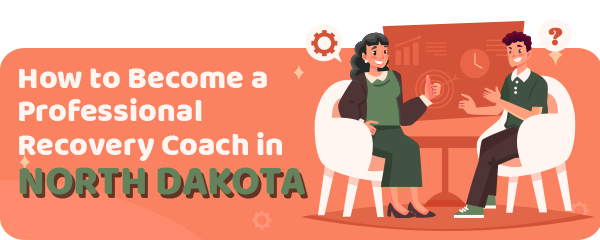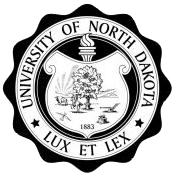In North Dakota, the role of a recovery coach is centered around providing guidance and assistance to individuals undergoing addiction treatment, helping them navigate their unique path toward recovery.
As a recovery coach, your primary responsibility is to empower and motivate patients, equipping them with the necessary tools to overcome substance dependency and lead fulfilling lives in sustained recovery.
Let’s find out more about this occupation!
Article Table of Contents
Job Description of a Professional Recovery Coach in North Dakota
It is important to distinguish the role of recovery coaches from therapists, as they do not engage in diagnosing or providing treatment to individuals.
The primary focus of a recovery coach is to offer unwavering support and guidance to clients, aiding them in their pursuit of lasting recovery.
Recovery coaches are equipped to work with individuals grappling with various forms of addiction, providing personalized assistance tailored to their specific needs.
The core responsibilities of a recovery coach include:
- Educating clients on essential life skills, such as cultivating a healthy and balanced lifestyle through activities like cooking and cleaning.
- Collaborating with clients to establish realistic goals and develop actionable plans to achieve them.
- Conducting regular safety and wellness checks to ensure clients’ overall well-being throughout their recovery journey.
- Monitoring clients’ progress and holding them accountable for their actions and commitments.
- Facilitating access to additional recovery resources based on individual needs.
- Upholding client confidentiality and adhering to HIPAA guidelines to maintain privacy and foster trust.
- Engaging with clients and their families to provide comprehensive support and address any challenges or concerns that may arise.
Steps to Become a Professional Recovery Coach in North Dakota
If you aspire to pursue a career as a recovery coach in North Dakota, here are the steps you can follow:
1. Obtain a High School Diploma
To embark on a career as a recovery coach, having a high school diploma or its equivalent is essential.
If you don’t have a high school diploma, you can explore obtaining a General Education Development (GED) certificate.
2. Gain Practical Experience
Practical experience plays a crucial role in developing the necessary skills.
Consider volunteering at recovery centers or organizations dedicated to addiction recovery in your local area to gain more experience.
3. Get certified
Once you have confirmed your eligibility, you are required to complete the application form provided on the official website of the North Dakota Behavioral Health and Human Services.
To proceed with the application, a non-refundable fee of $50 must be submitted.
In addition to the application form, you must include:
- Proof of completion of the mandatory peer support training.
- Three letters of recommendation, including one from a personal reference, one from a professional reference, and one that highlights the
- applicant’s commitment to recovery.
- A personal statement detailing the applicant’s personal experience with recovery.
- A signed copy of the Code of Ethics.
Training For Professional Recovery Coaches in North Carolina
University of North Dakota 
The University of North Dakota offers an online Professional Recovery Coach training program through the Ed2go platform.
This program, approved by the IAPRC, provides comprehensive training for people seeking to become certified recovery coaches.
With a course duration of approximately 6 months and 60-course hours, students can complete the program at their own pace.
The Continuing Education Units earned through this program are recognized by the NAADAC and the IC&RC.
Connecticut Community for Addiction Recovery 
For those interested in the Connecticut Community for Addiction Recovery program, virtual training sessions are available.
CCAR’s training program covers various topics like:
- the role and functions of a recovery coach
guiding principles of recovery
building relationships
understanding stages of recovery
ethics
You can also get certification as a Certified Family Peer Specialist from the National Federation of Families.
This certification is meant for families of individuals in recovery.
The CFPS certification requires the submission of a resume, documentation of peer support hours, training documentation, verification of supervised family peer support work, and payment of the fees.
The training for CFPS covers essential competency areas, including wellness and resiliency, effecting change, resources and natural supports, systems knowledge and navigation, and professional responsibilities.
To maintain certification as a peer recovery specialist or recovery coach in North Dakota, recertification is required every two years.
This involves completing at least 20 Continuing Education Units, with a focus on ethics.
The Department of Human Services 
It offers recorded training opportunities on its peer support site, including courses such as:
- Peer Support Refresher,
- Peer Support Ethics
- Values in the Workplace,
- Integration and Supervision of Peer Support Services in the Workplace.
| School Name | Address |
|---|---|
| Connecticut Community for Addiction Recovery | online |
| University of North Dakota | Grand Forks, ND 58202 |
Salary Outlook for Professional Recovery Coaches in North Dakota
When considering the financial prospects of a career as a recovery coach in North Dakota, it is important to note that your income can vary depending on several factors, including experience, location within the state, and the employing organization.
However, the average annual salary in North Dakota for professional recovery coaches is $32,970.
To provide you with a comprehensive and unique understanding of the income potential for recovery coaches in North Dakota, please refer to the detailed table below.
Annual Salary Range:| Location | Avg. Annual Salary |
|---|---|
| Bismarck | $33,520 |
| Mandan | $33,520 |
| Minot | $33,005 |
| Williston | $33,005 |
| Dickinson | $33,005 |
| Williston | $33,005 |
| Fargo | $32,215 |
| West Fargo | $32,215 |
| Ypsilanti | $31,700 |
| Grand Forks | $30,838 |
Regional Salary in North Dakota
| Region | Employed | Avg. Annual Salary | Avg. Hourly Pay | Top 10% Annual Salary | Bottom 10% Annual Salary |
|---|---|---|---|---|---|
| Fargo, ND-MN | 60 | $61,220 | $29.43 | $83,860 | $45,650 |
* Employment conditions in your area may vary.
Frequently Asked Questions
What skills do I need to become a professional recovery coach in North Dakota?
Any occupation is better suited for a certain set of skills.
Professional recovery coaches in North Dakota need:
- Very strong interpersonal skills
- Empathy
- Very strong communication skills
- Organization skills
- Commitment
Are professional recovery coaches similar to healthcare professionals?
Recovery coaches do not engage in diagnosing or treating individuals, as their role differs from that of therapists or healthcare professionals.
Where can I find work as a professional recovery coach in North Dakota?
There are several places that need recovery coaches, like:
- Hospitals
- Recovery clinics
- Detox centers
- Various communities
- Psychosocial Rehabilitation clinics
- Crisis Intervention
- Assertive Community Treatment
Read the full guide: How to Become a Professional Recovery Coach



